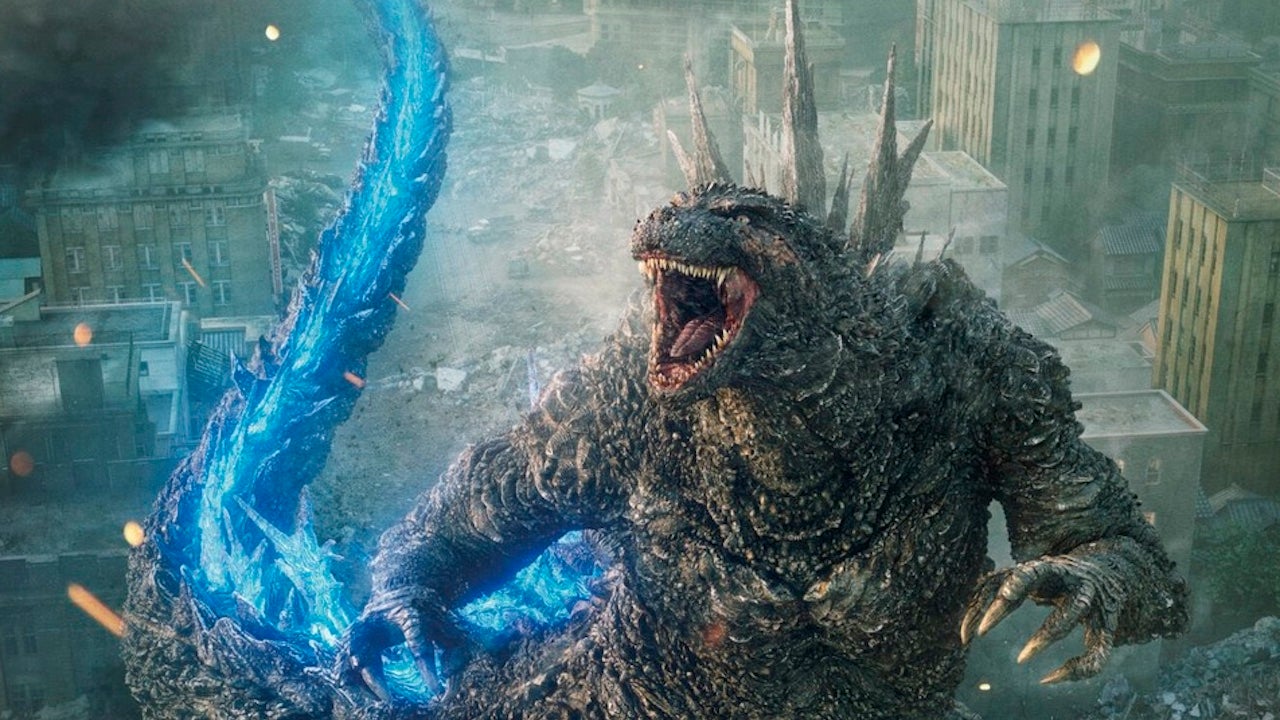There has been a ton of chatter about Godzilla Minus One's $15 million budget, which bucks Hollywood trends by coming in well under nine figures while still having stunning VFX.
That chatter only intensified last night, when Godzilla Minus One took home the Academy Award for Best Visual Effects (see the full list of winners here), beating blockbuster competitors like Guardians of the Galaxy Vol. 3 and Mission: Impossible - Dead Reckoning. Not only is it the first Godzilla movie to win an Oscar, as well as the first win in the category for a Japanese film, but its budget is pretty darn astonishing when compared to past winners in the category.
Director Takashi Yamazaki hasn't revealed a specific number for Godzilla Minus One's budget, but has confirmed that it comes in somewhere between $10 million and $15 million (per Vulture), with a VFX team of 35 artists.
To fully contextualize how much of an anomaly in the category Godzilla Minus One truly is, we took a look at the production budgets of every other VFX Oscar winner of the 2000s, and the disparity between just about every other fil is, well, pretty astonishing. The last film to win the VFX Oscar with the similar budget to Godzilla Minus One is Alex Garland's Ex Machina in 2015, which also had a budget of $15 million.
But not even that really does Godzilla Minus One's feat justice, since Ex Machina, too, is something of an anomaly. Every other winner in the category cost at least four times more than those films, with the next least-expensive winner being First Man at the 2018 Oscars. That came in around $60 million when tax incentives are counted ($70 million before tax incentives).
The Lord of the Rings trilogy is also a little more frugal than you might think, with each movie costing about $94 million, but the rest of the winners are into the hundreds of millions. That includes the last winner before Godzilla Minus One, Avatar: The Way of Water, whose production budget reportedly came in at a jaw-dropping $350 million-$400 million.
To put it into more context, you can see the reported budgets of every VFX Oscar winner of the 2000s below:
- 2023: Godzilla Minus One: $10 million-$15 million
- 2022: Avatar: The Way of Water: $350 million-$400 million (Source: The Hollywood Reporter)
- 2021: Dune: $165 million (Deadline Hollywood)
- 2020: Tenet: $205 million (Variety)
- 2019: 1917: $100 million (The Hollywood Reporter)
- 2018: First Man: $60 million (Variety)
- 2017: Blade Runner 2049: $150 million-$185 million (The Hollywood Reporter)
- 2016: The Jungle Book: $175 million (Box Office Mojo)
- 2015: Ex Machina: $15 million (Consequence)
- 2014: Interstellar: $165 million (Box Office Mojo)
- 2013: Gravity: $100 million (Variety)
- 2012: Life of Pi: $120 million (LA Times)
- 2011: Hugo: $170 million (LA Times)
- 2010: Inception: $160 million (Box Office Mojo)
- 2009: Avatar: $237 million (The Wrap)
- 2008: The Curious Case of Benjamin Button: $167 million (New York Times)
- 2007: The Golden Compass: $180 million (Variety)
- 2006: Pirates of the Caribbean: Dead Man's Chest: $225 million (Box Office Mojo)
- 2005: King Kong: $207 million (BBC)
- 2004: Spider-Man 2: $200 million (Box Office Mojo)
- 2003: The Lord of the Rings: The Return of the King: $94 million (Box Office Mojo)
- 2002: The Lord of the Rings: The Two Towers: $94 million (Box Office Mojo)
- 2001: The Lord of the Rings: The Fellowship of the Ring: $93 million (Box Office Mojo)
- 2000: Gladiator: $103 million (Box Office Mojo)
So How Did Godzilla Minus One Do It?
That's been the big question, especially given how good Godzilla Minus One's VFX look. Fans have pointed out how the VFX looks on par (if not better) than a lot of this past year's Marvel and DC movies, which usually have budgets anywhere from $150 million-$300 million.
It's worth noting, though, that once that $15 million budget was revealed, there were also concerns about Godzilla Minus One's VFX team potentially being overworked and underpaid. Those concerns have only increased as poor working conditions in the VFX industry have become more and more public, spurring a growing unionization effort.
Yamazaki has pushed back on claims of overwork, however, focusing on Godzilla Minus One's streamlined approach over the eight months of production.
"There weren't too many late nights," Yamazaki told IGN in a recent interview. "Everyone had their weekends, so it wasn't like a crazy labor situation for the people. Rather, I would say it was the computers that had a lot of the burden."
Yamazaki elaborated further in a Vulture interview, pointing out that budgets for Japanese films tend to be lower than budgets in the U.S. (Godzilla Minus One is the first VFX Oscar winner from a non-U.S. studio in decades). "So, we have been educated to work within the constraints of a small budget when it comes to VFX," he said.
He also noted that U.S. studios like Marvel tend to outsource VFX to third-party vendors, creating a situation where, as some VFX workers have complained, work has to be redone, with time wasted over redundancies.
"Outsourcing to a third party is going to take time and money. We tend to keep it in-house," Yamazaki told Vulture. "That’s just the most efficient and effective way to work. But that doesn’t mean we don’t have some external resources that we use."
In another interview with Variety, Yamazaki said, “We didn’t scale our team based on how many shots we had. We just divided things up differently, and that meant our artists had three times the shots they normally would.”
The discourse over Godzilla Minus One's surprisingly small budget only proves this conversation isn't going anywhere, especially as Hollywood budgets continue to balloon. To read more about that, check out our breakdown on Dune: Part 2 and how it proves Hollywood budgets are out of control.
Alex Stedman is a Senior News Editor with IGN, overseeing entertainment reporting. When she's not writing or editing, you can find her reading fantasy novels or playing Dungeons & Dragons.






